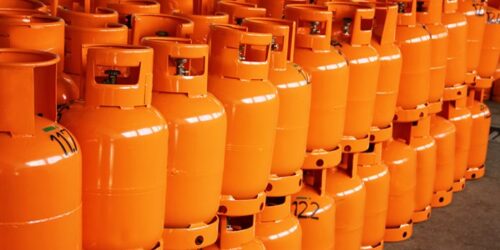The local liquefied petroleum gas (LPG) industry has called for formation of an inquiry commission to probe the windfall gains reaped by LPG importers, which have caused losses worth billions of rupees to the local industry and the national exchequer due to disparity in taxes.
The industry has also urged the prime minister to take notice of the situation and form a commission, like in the case of oil crisis, to investigate the gains made by the LPG importers.
They said that the National Accountability Bureau (NAB) and the Federal Investigation Agency (FIA) should investigate the issue as all draft summaries sought to provide further incentives to the importers at the expense of the local industry.
All stakeholders, including refineries, the Oil and Gas Regulatory Authority (Ogra) and the Federal Board of Revenue (FBR), have raised the issue of disparity in taxes at various forums and demanded a level playing field for all players.
Interestingly, though Ogra regulates prices of locally produced LPG, there is no price regulation for the imported LPG.
In a recent letter to the Petroleum Division, Oil and Gas Development Company Limited (OGDCL) asked for removing the disparity in taxes as the importers were making money at the cost of local LPG producers.
Local LPG producers are not only paying 17% general sales tax, but they also pay petroleum levy on LPG. However, the importers are paying only 10% tax.
As end-consumers are buying LPG at market prices regardless of being local or imported fuel, it means that 7% tax benefit and waiver of regulatory duty are being pocketed by the LPG importers and middlemen, resulting in windfall gains of over Rs15 billion in the last two years.
READ ECC mulls action against K-Electric
Discussions with different LPG industry officials revealed that the local industry wanted the constitution of a commission to probe how the importer mafia manipulated and caused substantial loss to the national exchequer.
Not only this, but they have also made the business of local LPG producers, mainly state-run companies like Parco, OGDCL and Pakistan Petroleum Limited, unviable.
Over the last couple of months, these companies have reduced LPG prices several times due to the monopoly of LPG importers, who have control over the market in Pakistan. The government had imposed regulatory duty on LPG imports, but the importers managed to get it removed.
Petroleum Exploration and Production Companies Association (PEPCA), the LPG producers’ forum, has already expressed strong reservations and asked for removing the tax disparity and restoring regulatory duty on LPG imports.
It argued that future investment in LPG extraction plants would not be viable if the policy remained tilted towards imports and all further investments in the LPG sector would be discouraged because of a one-sided policy favouring importers and penalising local investors.
The local industry suggested two options to resolve the price disparity and provide a level playing field.
First, it was proposed that GST on locally produced LPG should be reduced to 10%, which is currently being charged at 17%, and petroleum development levy should be waived as there was no regulatory duty on imports.
It was proposed that anti-dumping duty/ regulatory duty be imposed on imported LPG at Rs20,000 to Rs22,000 per ton as a balancing tool as over 500,000 tons of LPG was being imported from Iran per annum. This will provide approximately Rs14 billion in additional revenue to the exchequer.
The second option was that in reference to clause 3.4.3 of the LPG Production and Distribution Policy 2016, “only public sector companies should be allowed to import LPG to discourage hoarding and price escalation” and also to ensure the quality of imported LPG.
FBR officials are of view that recommendations of giving advance income tax waiver on LPG imports is not justified/ required as it is already adjustable and any further waiver will result in significant reduction of government revenue and will open avenues of tax evasion.
Moreover, the imported LPG is primarily brought from Iran at $180 to $200 per ton, which is already Rs23,000 to Rs25,000 per ton cheaper than the locally produced LPG.
In order to balance the cost of local and imported LPG, the government should impose regulatory duty on the import of LPG.
Secondly, the proposal of imposition of regulatory duty only on the land route via Taftan border will facilitate large sea importers that will not only result in monopoly and cartelisation, but will also deprive the already under-developed Balochistan province of its business.





